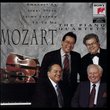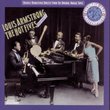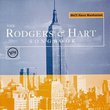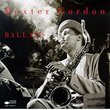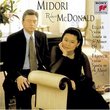| All Artists: Anton Bruckner, George Szell, Vienna Philharmonic Orchestra Title: Anton Bruckner: Symphony No 7 in E major Members Wishing: 0 Total Copies: 0 Label: Sony Original Release Date: 1/1/1994 Re-Release Date: 8/23/1994 Genre: Classical Styles: Historical Periods, Modern, 20th, & 21st Century, Symphonies Number of Discs: 1 SwapaCD Credits: 1 UPC: 074644764628 |
Search - Anton Bruckner, George Szell, Vienna Philharmonic Orchestra :: Anton Bruckner: Symphony No 7 in E major
 | Anton Bruckner, George Szell, Vienna Philharmonic Orchestra Anton Bruckner: Symphony No 7 in E major Genre: Classical
|
Larger Image |
CD DetailsSimilar CDsSimilarly Requested CDs
|
CD ReviewsSzell's Wonderful Bruckner T. Beers | Arlington, Virginia United States | 09/27/2002 (5 out of 5 stars) "On the evidence of his recordings, George Szell was an extraordinarily fine Bruckner conductor. Unfortunately, he died (1970) just as the Bruckner boom was getting started in America, so he wasn't given many opportunities to bring his Bruckner interpretations into the recording studio. For CBS/Columbia Szell made studio recordings of only the Third and Eighth symphonies in the late '60s (both are now available on Sony Essential Classics). Given this meager legacy, it is our very good luck that Austrian radio was on hand to make a radio broadcast recording of Szell and the Vienna Philharmonic performing the great Seventh Symphony at the 1968 Salzburg Festival. I suppose that a Cleveland recording would have produced even greater wonders of balance and sensitive phrasing than that provided on this expertly remastered CD, but I can't be alone in thinking that the Vienna Philharmonic elicited a compensating & unique mellowness from Szell that he rarely achieved back home. Not only do you hear everything in the score, but the music breathes in a way that can only be described as echt Austrian: the spirit of Schubert is never far off, and I doubt that any conductor has ever achieved a more nobly songful statement of Bruckner's greatest Adagio. In spite of its late '60s date, the recording is mono but don't let that put you off .... sound quality is very fine indeed. Szell was a regular and most welcome visitor at the Salzburg Festival from the end of the war until his untimely death 25 years later. This disc wonderfully documents a very special partnership." STAY AWAY! Samuel Stephens | TN, USA | 08/11/2007 (1 out of 5 stars) "It is very rare that I give a recording such a low rating, but in this case, I think, you the listener would have to agree with me --if you ever made the mistake of buying this disc. You might ask: Szell+Wiener+Bruckner=Disaster? Yes. Szell was a master, and he may have been a master of Bruckner, but this is not a representative document. Part of the reason you can't enjoy this recording is because of the terribly bad sound. Another reason is the yes, lazy, performance of the Vienna Philharmonic. Whatever Szell may have felt during this performance, whatever his credentials as a Brucknerian: they are not here." Szell is certainly in charge, but the recorded sound feels a Santa Fe Listener | Santa Fe, NM USA | 01/13/2008 (3 out of 5 stars) "Usually the five-star brigade has its way at Amazon, no matter how good or bad a performance might be, but they've been undermined by the one-star guerillas in this case. There's a small market for old mono recordings of Bruckner, and justifiably so -- much of the symphonies' impact depends upon the composer's grandly architectural sound world. Austrian Radio provides Szell live Sym. #7 with a pretty marginal recording, on the borderline between poor FM and good AM.
If he had happened to be inspired by this visit to the Salzburg Festival, that would make a difference. But Szell's dedicaiton to literalism foregoes too much of Bruckner's emotional range. One comes away with a sense that a disciplined interpretation, with a few lapses of discipline in the execution, delivers half a loaf. But this is by no means a one-star performance. Szell's unromantic view, as with his Mahler, brings rewards in Toscanini-like clarity, balance, and a bracing absence of sentimentality. His beat is flexible -- suprisingly so, in fact -- and sensitive to turns of phrase. Moments of real intensity emerge throughout. I'd rather hear his Bruckner than Abbado's or Muti's, by a long shot. In all, Szell's admirers don't need to run away, while the rest of us will probably be satisfied with one listen, largely because of sonic limitations." |

 Track Listings (4) - Disc #1
Track Listings (4) - Disc #1


